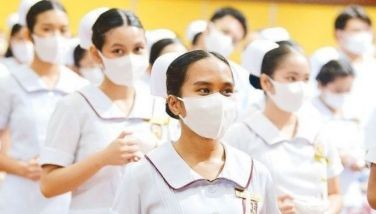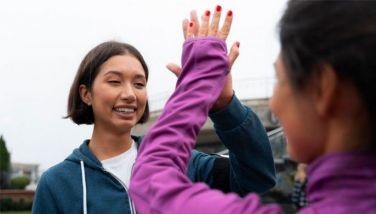SARS vaccine research

March 14, 2004 | 12:00am
The outbreak of SARS in China in the beginning of 2003 thrust an important but difficult task upon medical researchers: The development of a SARS vaccine. At present, at least 20 research teams at Chinese medical institutions are conducting research into such a vaccine. Since two researchers contracted the SARS virus while working at laboratories in Singapore and Taiwan at the end of 2003, the Chinese government has reinforced the safety examination and assurance for SARS-related laboratories. Strict requirements have been formulated for storing SARS virus specimens and establishing SARS research labs.
The research and experiments must take place in a P3 lab to ensure biological safety. Departments concerned inspect and examine the candidate labs on a regular basis, and only those which meet all the standards can be approved to carry out research. At present, the P3 lab of Wuhan University is China’s largest lab dedicated to the research of a SARS vaccine. On October 13, 2003, Wuhan University’s P3 lab started its SARS vaccine experiments on animals. According to the international practice of vaccine research, the technicians picked out 18 Henghe monkeys from a group of 10,000 and inoculated them with a SARS vaccine in large, medium, and small doses.
The experimental results showed that the 0.5 mg-dose vaccine made the monkeys partly resistant to the SARS virus and that the 5mg and the 50mg doses fully protected the monkeys against the virus. The experiments also suggested that the dead-virus vaccine for use in people was highly safe towards the monkeys: a monkey was inoculated with concentrated vaccine equal to 10,000 times the smallest dose, and after pathologic examination, no change was found in any of the monkey’s organs.
According to the one in-charge of the experiments and is vice president of the Medical College of Wuhan University, both x-ray films and blood analysis proved that this kind of SARS vaccine is effective and safe.
According to the State Food and Drug Administration, so far, three of the Chinese research teams for the dead-virus vaccine have finished pre-clinical experiments, and one of them will be chosen to be the first conduct clinical experiments. Some experts have pointed out, though, that in order to ensure the effectiveness and safety of the vaccine, clinical experiments would probably last three to four years. To develop a highly safe vaccine said by a chief expert at the Chinese Center for Disease Control and Prevention, they would rather take a longer time in experimentation.
The research and experiments must take place in a P3 lab to ensure biological safety. Departments concerned inspect and examine the candidate labs on a regular basis, and only those which meet all the standards can be approved to carry out research. At present, the P3 lab of Wuhan University is China’s largest lab dedicated to the research of a SARS vaccine. On October 13, 2003, Wuhan University’s P3 lab started its SARS vaccine experiments on animals. According to the international practice of vaccine research, the technicians picked out 18 Henghe monkeys from a group of 10,000 and inoculated them with a SARS vaccine in large, medium, and small doses.
The experimental results showed that the 0.5 mg-dose vaccine made the monkeys partly resistant to the SARS virus and that the 5mg and the 50mg doses fully protected the monkeys against the virus. The experiments also suggested that the dead-virus vaccine for use in people was highly safe towards the monkeys: a monkey was inoculated with concentrated vaccine equal to 10,000 times the smallest dose, and after pathologic examination, no change was found in any of the monkey’s organs.
According to the one in-charge of the experiments and is vice president of the Medical College of Wuhan University, both x-ray films and blood analysis proved that this kind of SARS vaccine is effective and safe.
According to the State Food and Drug Administration, so far, three of the Chinese research teams for the dead-virus vaccine have finished pre-clinical experiments, and one of them will be chosen to be the first conduct clinical experiments. Some experts have pointed out, though, that in order to ensure the effectiveness and safety of the vaccine, clinical experiments would probably last three to four years. To develop a highly safe vaccine said by a chief expert at the Chinese Center for Disease Control and Prevention, they would rather take a longer time in experimentation.
BrandSpace Articles
<
>
- Latest
- Trending
Trending
Latest
Trending
Latest
Recommended

November 5, 2024 - 2:29pm


























